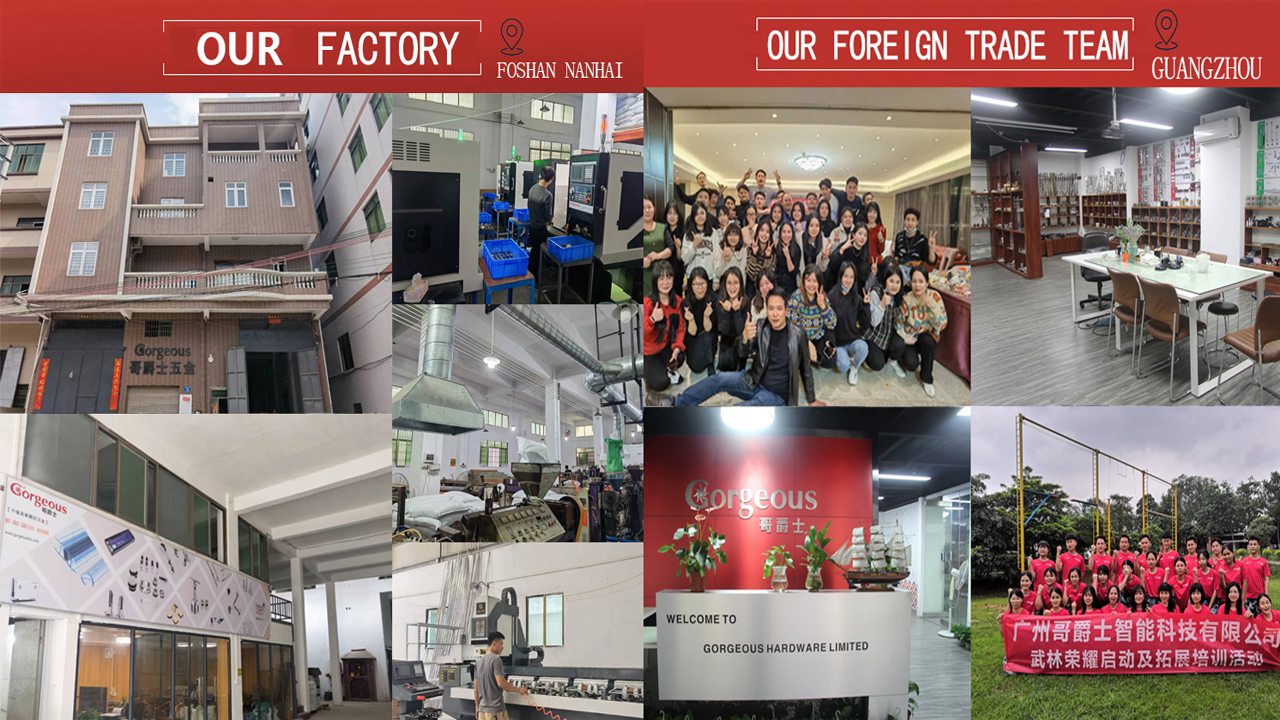
ABOUT
PRODUCTS
Gorgeoussliding Door Wheel Track Glass Roller Slide System
Material Composition and Durability
The choice of materials significantly impacts the system's durability and longevity. High-quality systems typically utilize robust materials designed to withstand years of use and the stresses of daily operation. The tracks themselves are often constructed from heavy-duty aluminum or steel, chosen for their resistance to corrosion and deformation. Aluminum offers a lightweight yet strong option, ideal for larger and heavier glass doors. Steel, while heavier, offers superior strength and is a preferred choice in high-traffic areas or for exceptionally large doors. The rollers, usually made from nylon, polyurethane, or a combination thereof, are engineered for smooth rolling and resistance to wear. Nylon offers excellent abrasion resistance, while polyurethane provides superior shock absorption, minimizing noise and vibration. The combination often provides the best of both worlds: smooth, quiet operation and long-lasting durability. The careful selection of these materials ensures the system can withstand the weight of the glass doors and the repetitive stresses of opening and closing.
Furthermore, the surface treatment of the track material is crucial. Powder coating, for instance, protects aluminum tracks from corrosion and provides a durable, aesthetically pleasing finish. Similarly, zinc plating or other protective coatings on steel tracks provide added resistance to rust and extend the system's lifespan. The quality of these coatings directly impacts the system’s resistance to wear and tear, especially in humid or coastal environments. A well-protected track ensures the system remains functional and visually appealing for many years to come.
Roller Design and Functionality
The design of the rollers is paramount to the system's performance. High-quality systems utilize precisely engineered rollers designed to minimize friction and noise. These rollers often incorporate ball bearings for exceptionally smooth movement, even when supporting heavy glass panels. The number of rollers per door also impacts the system's load-bearing capacity and smoothness of operation; more rollers generally mean better weight distribution and a quieter slide. The type of bearing used within the roller also affects the longevity and efficiency of the system. High-quality bearings are crucial for ensuring long-term performance and reducing wear and tear.
Beyond the basic function of rolling, the design may incorporate features such as self-lubricating materials to further minimize friction and noise. Some systems utilize rollers with integrated dampening mechanisms to provide a soft, controlled closing action, preventing the doors from slamming shut. This is particularly beneficial in households with children or in areas where a gentler closure is desirable. The detailed design of the rollers contributes significantly to the overall user experience, making the operation of the sliding doors both easy and quiet.
Installation and Adjustment
Proper installation is crucial for ensuring the system's optimal performance. A poorly installed system can lead to binding, noise, and premature wear. The tracks must be precisely leveled and aligned to prevent uneven movement and stress on the rollers. The rollers themselves need to be correctly seated within the track, and any adjustment mechanisms should be used to ensure smooth and effortless operation. Many systems include adjustment screws that allow for fine-tuning the roller alignment, compensating for minor irregularities in the door frame or floor.
Some systems incorporate features that simplify installation. Pre-assembled components can reduce installation time and complexity, making it easier for DIY enthusiasts. Clear and detailed instructions, as well as readily available technical support, are crucial for a successful installation. Incorrect installation can lead to premature wear and tear on the rollers and tracks, resulting in the need for early replacement or costly repairs. Therefore, choosing a system with user-friendly installation instructions and adequate support is vital.
Maintenance and Longevity
Regular maintenance contributes significantly to the longevity of the sliding door system. Periodic cleaning of the tracks is essential to remove dust, debris, and other contaminants that can hinder smooth operation and increase friction. A simple vacuum cleaner or a brush can effectively remove most debris. Lubrication of the rollers, using a silicone-based lubricant, can further minimize friction and noise, ensuring a smooth, silent slide for years to come. Avoid using oil-based lubricants as they can attract dust and debris.
Regular inspections of the rollers and tracks can help identify potential problems early on, such as worn rollers or damaged tracks. Addressing these issues promptly can prevent further damage and extend the lifespan of the system. By following simple maintenance routines, homeowners can ensure their sliding glass doors continue to operate smoothly and quietly for many years, maintaining the aesthetic appeal and functionality of their space.
Conclusion
The Gorgeoussliding Door Wheel Track Glass Roller Slide System, representing the broader market of high-quality systems, is far more than just a collection of parts. It's a precision-engineered mechanism crucial to the smooth, efficient, and aesthetically pleasing operation of modern sliding glass doors. Understanding the factors contributing to its performance, from the material composition and roller design to proper installation and maintenance, allows for informed decision-making when selecting and utilizing such a system. By considering these aspects, homeowners can enjoy years of trouble-free operation and the enduring beauty of their sliding glass doors.
SUBSCRIBE
INQUIRY
